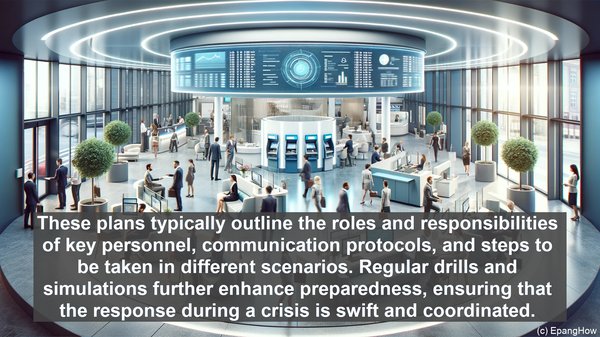Introduction: The Dynamic World of Finance
Hello everyone! Welcome to our article on the intriguing world of finance. Today, we’ll be exploring the contrasting domains of risk management and crisis management, both of which are pivotal in maintaining stability and growth in the financial sector.

Risk Management: Navigating the Uncertainties
Risk management, as the name suggests, is all about identifying, assessing, and mitigating potential risks that an organization may face. It involves a systematic approach, wherein risks are categorized, analyzed, and appropriate strategies are formulated to minimize their impact. The goal of risk management is to strike a balance between risk and reward, ensuring that the organization can seize opportunities while safeguarding against potential setbacks.
Risk Management Strategies: A Holistic View
When it comes to risk management, there are various strategies at play. These can include diversification, where investments are spread across different assets to reduce concentration risk. Another approach is hedging, which involves taking positions that offset potential losses. Additionally, risk transfer mechanisms such as insurance play a crucial role in mitigating specific risks. The key here is to have a comprehensive risk management framework in place, one that is tailored to the organization’s specific needs and risk appetite.

Crisis Management: Navigating the Storm
While risk management focuses on preemptive measures, crisis management comes into play when a crisis has already struck. It involves a swift and strategic response to mitigate the impact of the crisis and restore normalcy. Crisis management is often characterized by its urgency, as quick decision-making and effective communication are vital during such times. The goal here is not just to weather the storm but also to emerge stronger, learning from the crisis and implementing measures to prevent similar situations in the future.
Crisis Management: The Importance of Preparedness
One crucial aspect of crisis management is preparedness. Organizations that have robust crisis management plans in place are better equipped to handle unforeseen events. These plans typically outline the roles and responsibilities of key personnel, communication protocols, and steps to be taken in different scenarios. Regular drills and simulations further enhance preparedness, ensuring that the response during a crisis is swift and coordinated.
Risk Management and Crisis Management: A Symbiotic Relationship
While risk management and crisis management may seem distinct, they are closely intertwined. A robust risk management framework can significantly reduce the likelihood and impact of a crisis. Similarly, the lessons learned during a crisis can inform and strengthen the organization’s risk management strategies. In essence, risk management is about proactive measures, while crisis management is about reactive measures. Both are essential in navigating the complex and ever-evolving financial landscape.
